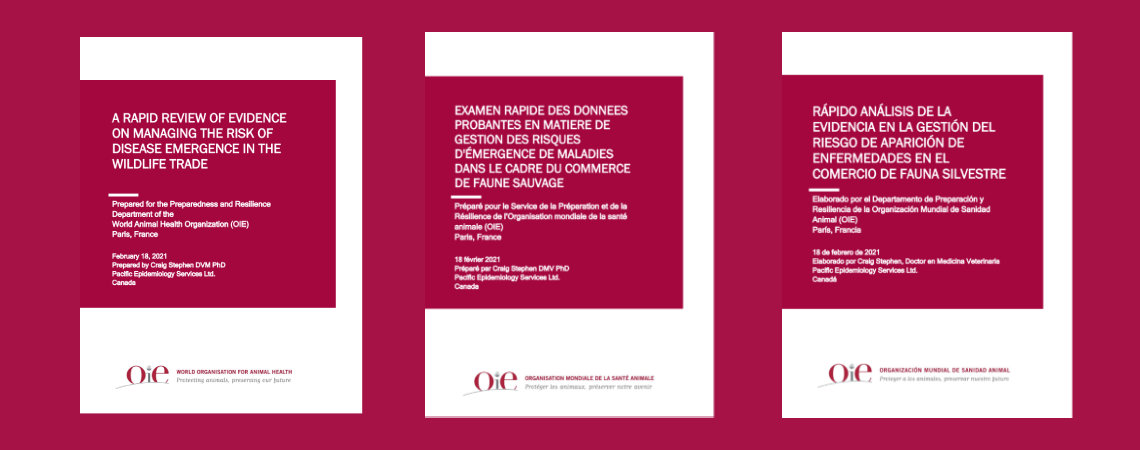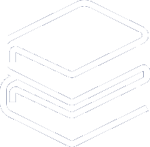-
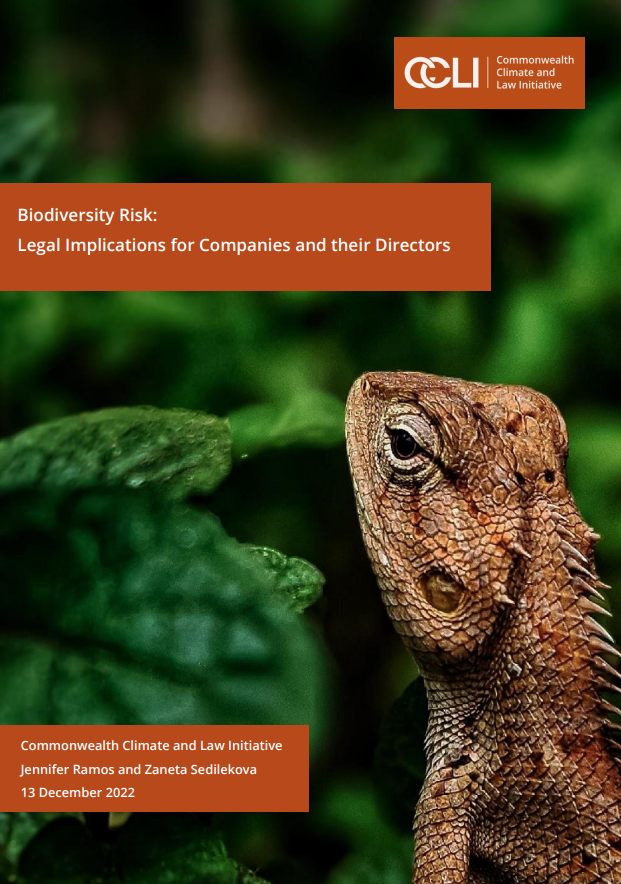
Resources
Biodiversity risk: legal implications for companies and their directors
This paper analyses the relevance of biodiversity risks to companies and economies in the discharge of directors’ legal duties globally.
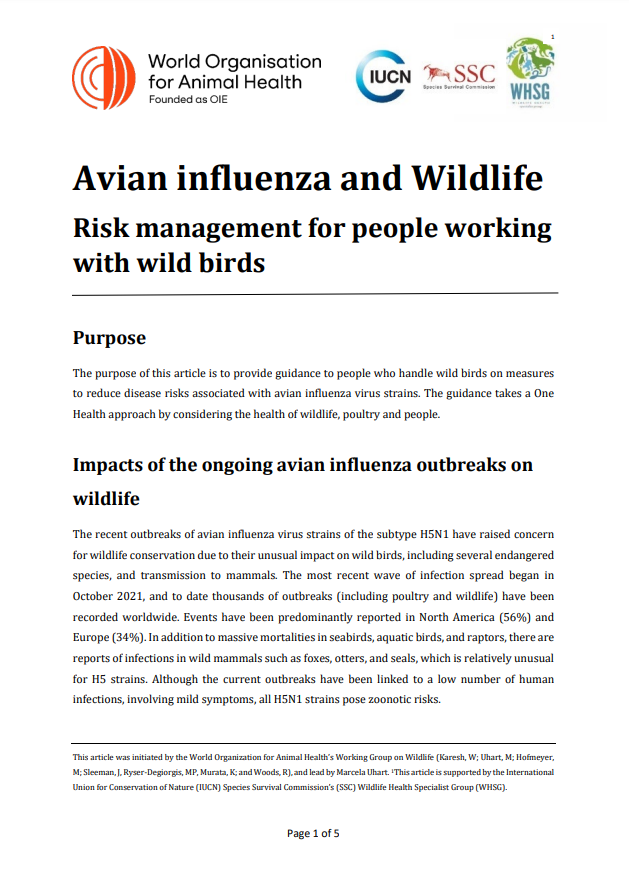
Resources
Avian influenza and wildlife: risk management for people working with wild Birds
The purpose of this article is to provide guidance to people who handle wild birds on measures to reduce disease risks associated with avian influenza virus strains. The guidance takes a One Health approach by considering the health of wildlife, poultry and people.
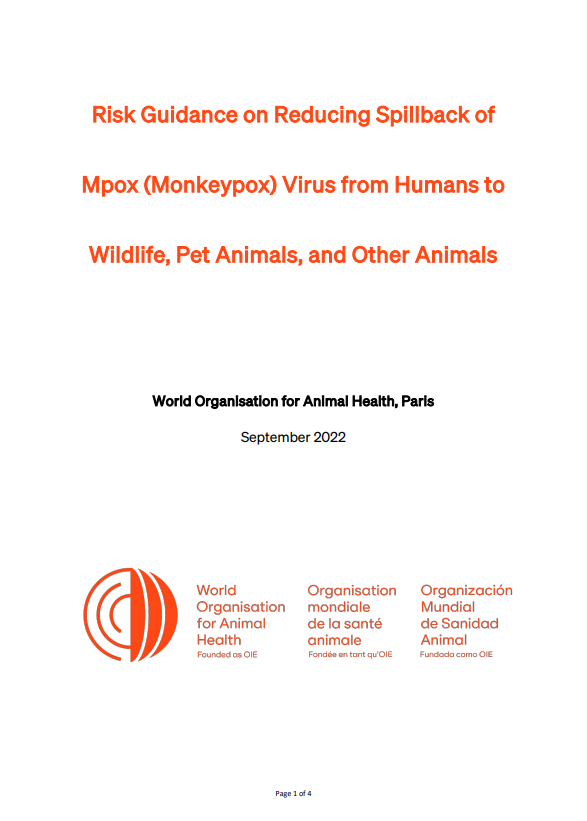
Resources
Risk Guidance on Reducing Spillback of Mpox (Monkeypox) Virus from Humans to Wildlife, Pet Animals, and Other Animals
The current Mpox (monkeypox) global health emergency is caused by the zoonotic Mpox (monkeypox) virus found in humans, rodents, non-human-primates, and other mammals. Historically found in Africa where the virus is thought to be maintained in rodent populations, the virus is rapidly spreading across the globe to new countries and territories, mainly through human-to-human transmission.

Resources
Wildlife health and related environmental factors in the WOAH PVS pathway
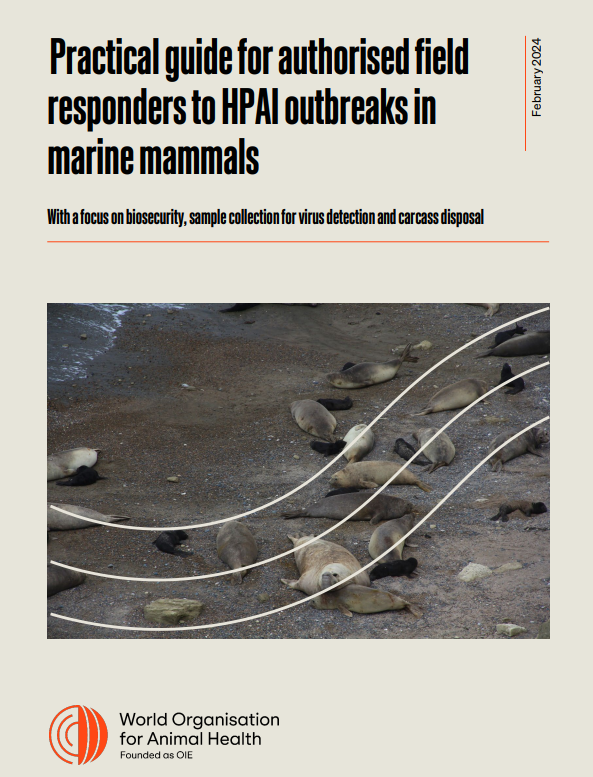
Resources
Practical guide for authorised field responders to HPAI outbreaks in marine mammals, with a focus on biosecurity, sample collection for virus detection and carcass disposal
Since its emergence in 1996, high pathogenicity avian influenza (HPAI) caused by the H5N1 subtype, has evolved into a global panzootic, impacting Africa, Asia Pacific, the Americas, Europe, and the Middle East. Beyond domestic poultry and captive birds, it now threatens wild and domestic mammals, as well as humans. Since 2021, the HPAI H5N1 clade 2.3.4.4b strain has caused significant mortality in wild birds around the world and marine mammals in South America. Though these outbreaks have been linked to few human infections of mild to severe symptoms, all H5N1 strains (and some other subtypes) should be considered to pose zoonotic risks. Thus, this virus poses a risk to animal health, public health, and biodiversity.
Thus, early detection, immediate notification, and timely response, along with relevant biosecurity measures, are fundamental in devising containment and prevention strategies to protect animals, humans, and biodiversity.
To provide important guidance for such strategies, the current recommendations were developed. These recommendations stem from recent HPAI outbreaks in the marine mammals of South America, with potential global applicability that accounts for local conditions and differential epidemiological situations.
Panorama
Resources
Current Issue :
#2024-1




